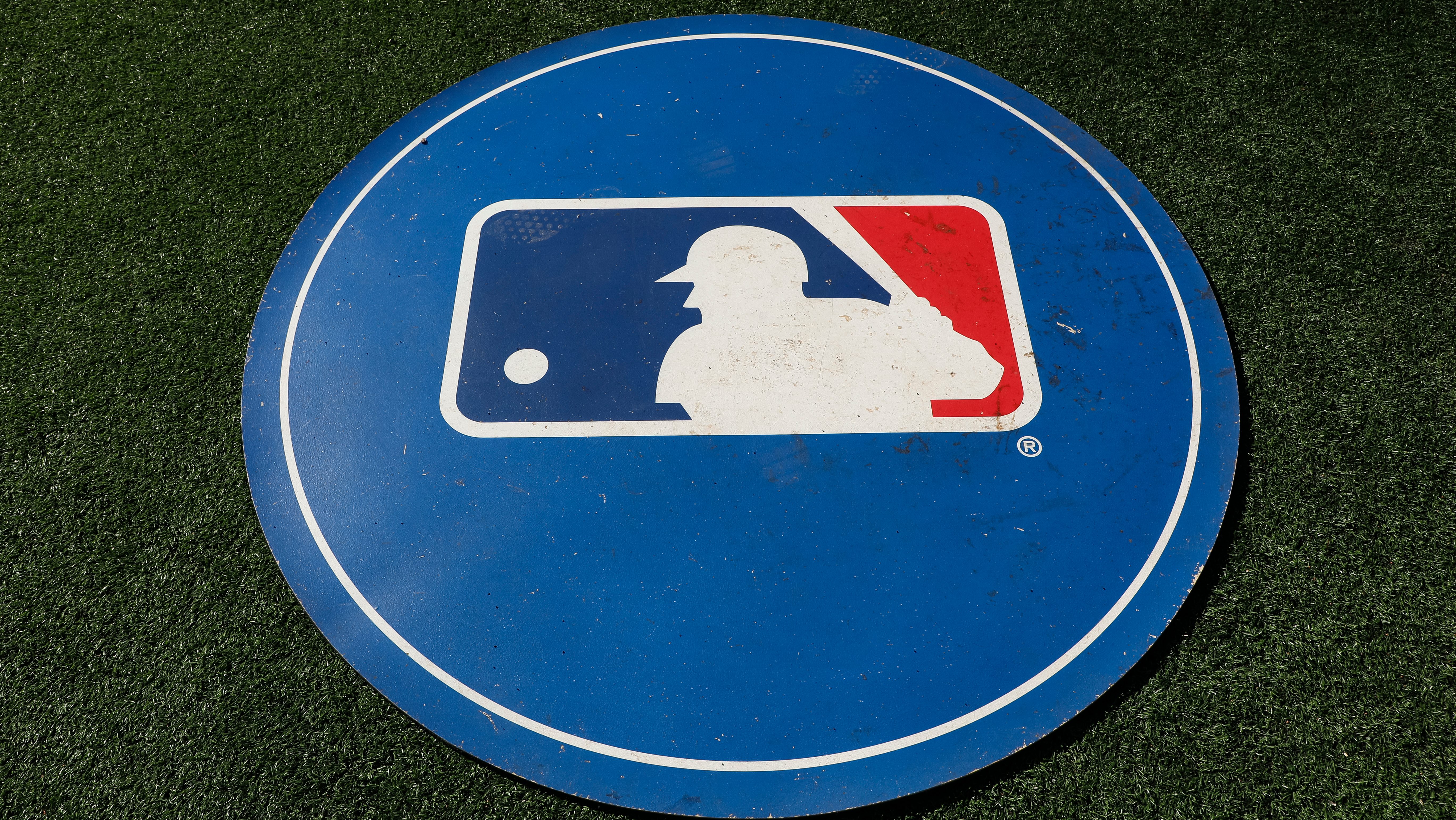SAN DIEGO – Anthony Rizzo didn’t walk over to the sound system and start blasting the “Rocky” theme song. But it still sounded like he was channeling his inner “Italian Stallion,” the way he tried to loosen up the Cubs during last year’s World Series run.
“We’ve gotten punched in the teeth the last two months,” Rizzo said. “You’re going to get up or you’re going to stay down. It’s up to us to decide what we’re going to do.
“I have full confidence in all of us that we’re going to get up and sprint and get this thing going, sooner than later.”
Rizzo stood in Petco Park’s cramped, dimly lit clubhouse late Tuesday night, a few steps over from where Kyle Schwarber had hunched over a laptop studying video while still wearing his full uniform and Nike cleats after a frustrating loss to the last-place Padres. Roughly 12 hours later, Schwarber (.165 average) sat at the same table next to Willson Contreras, talking at length with catching/strategy coach Mike Borzello.
It’s too simplistic and sort of misleading to call Rizzo the leader of this team. His All-Star production, roots planted in Chicago and above-and-beyond commitment to charity work and cancer research certainly make him a face-of-the-franchise player.
But Rizzo’s clubhouse influence is better understood as an embedded competitive drive and a short memory. It’s the ability to forget about it and focus on the next pitch. It’s almost like playing with noise-canceling headphones, not feeling tight during those high-pressure moments.
That’s exactly what the Cubs need after laboring through an 0-6 West Coast trip. Don’t bother wondering where this team would be with Dexter Fowler and David Ross when the Cardinals invade Wrigley Field this weekend. Even at 25-27 — the franchise’s lowest point since the end of a last-place season in 2014 — the nucleus of a World Series winner is still here.
MLB
“The most important thing is to not get down,” Jake Arrieta said. “Because if we do that, it’s going to continue to snowball and continue to go in this direction. A positive mindset has to be maintained to the best of our ability. And if we can do that and not let things linger, I think we’ll be OK.”
Whether it’s Arrieta facing rounds of questions about his velocity and looming free agency, or a pressing lineup hitting .209 with runners in scoring position, or a defense that drifts in and out of focus (38 errors in 52 games), the Cubs are dealing with forces beyond mechanical adjustments or extra work in the cage.
With that in mind, here are five takeaways from this week’s Cubs Talk podcast with John Baker, the former big-league catcher now working as one of the organization’s mental skills coordinators.
• R-E-L-A-X.
“Baseball’s an incredibly stressful game that’s inherent with tremendous amounts of failure,” Baker said. “It’s really hard for people sometimes to completely emotionally grasp what’s happening. We just played probably the most emotional game that all of these players (from 2016) will ever play in their lives in Game 7 of that World Series.
“The famous quote from that game when you watch it is when Rizzo goes over to David Ross and he tells him how emotional it is and he says: ‘Hey, man, all you can do is breathe.’ What do you tell little kids when they get freaked out? Take a deep breath. Well, there’s science behind that and there’s also thousands of years of people investigating it.”
[VIVID SEATS: Buy Cubs tickets right here]
• The Cubs certainly didn’t project Arrieta as a Cy Young Award winner when they made that change-of-scenery trade with the Orioles in July 2013, but they gathered enough sources to vouch for his personality and work ethic to believe that his raw abilities would be worth betting on. Weeks earlier, the Cubs zeroed in on Kris Bryant with the No. 2 overall pick in the draft, sensing he could handle the nonstop attention and the weight of being seen as a franchise savior.
“Our scouting department is fantastic,” Baker said. “It’s not just that these kids are the kind of people that have the physical capabilities to play baseball. (It’s doing) enough background to realize what kind of people these kids actually are – and what motivates them and drives them and what doesn’t freak them out — because that’s a big part of Wrigley Field.
“I can remember as a visiting player, as a rookie, walking into that ballpark for the first time and seeing Derrek Lee and Aramis Ramirez and looking around like: ‘Oh my God, this has been around forever. Babe Ruth called his shot here.’ And then like missing a block in the dirt and it just kind of spiraling.
“Those are things that happen to people. (But) they do such an incredible job (finding) guys who are not just great players, but like bulletproof, mentally tough kids who don’t freak out.”
• Within three years, Schwarber has gone from first-round pick to hotshot rookie on a 97-win team to the disabled list to World Series legend to leadoff guy to platoon player to people wondering if he should get sent to the minors.
Ending the 108-year drought only took some heat off the Cubs.
“I’ve got some theories about winter,” said Baker, who played six seasons with the Marlins and Padres and still has a good sense of humor. “It makes people angry. And then summer, everybody gets hammered and goes crazy. I got those theories about Chicago. There’s a real strong sense of we got to get it all in when it’s hot, which I love about Chicago.
“No, I think that the team has been there for so long and it’s such a fabric of (the city). It’s like the streets there. It’s like the buildings. The Cubs are Chicago. Losing for so long — I think people really related to that. Because of that, there’s a big media presence and there’s a lot of intense scrutiny on the players.
“There’s just a lot more attention on baseball in Chicago than there is in San Diego or Florida. And when you step onto the field, or you walk through the concourse at Wrigley Field, you can physically feel the difference.”
• Baker played one season with the Cubs and became the popular backup catcher on an 89-loss team because of his ability to connect with pitchers, big-brother relationship with Rizzo, active presence on social media and a 0.00 career ERA.
So just think about what the head rush must be like if you’re part of The Team in Chicago.
“I can’t imagine,” Baker said. “I don’t want to call them problems. But when you think about things on that scale, you really have to consider like: ‘Well, what does Michael Jordan do?’ I don’t know, because this is novel territory for us. This is new ground for any team. Fortunately for us, we have a front office here that went through a similar thing in Boston.
“It’s guidance from the top on how to handle things like this. Theo (Epstein and his guys) have been there before. They know the mistakes that they made the first time, and their plan has adjusted and shifted based on the information they got out of that.”
• For all the Game 7 grief and daily dissections of his lineups and bullpen decisions, it took two full seasons and two months before a Cubs team managed by Joe Maddon experienced a six-game losing streak.
“Joe’s kind of greatest strength is his discrimination, his ability to know when he doesn’t need to get involved,” Baker said. “There’s so much intelligence in being able to do that. Some managers or some coaches – people I’ve seen in the past — you could feel when they were nervous. Or you could feel when they were freaked out a little bit.
“Joe’s kind of seen everything. He knows how to keep it cool and set the temperature so that guys can go out and just play and not be distracted by all the stuff around. That’s through knowing when to empower people to be themselves and to stay out of their way and let them play baseball.”
Wrigley Field used to be a place where prospects would arrive with so much hype and then disappear. Now look at all the young players — Bryant, Addison Russell, Schwarber, Contreras, Albert Almora Jr., Carl Edwards Jr. and Ian Happ — the Cubs have incorporated on Maddon’s watch.
“That’s what’s kept Joe Maddon so relevant and so good at this game,” Baker said, “his willingness to be open-minded and learn and to take in new information and try different things.
“When these kids come up, they find that this isn’t some environment where you need to freak out. Everyone’s kind of relaxed, we got a smile on our face and we know that even though at a time like this when the team’s not playing well…they authentically care about winning baseball games in Chicago.
“You see the stress that it wears on them, but you also see those same guys still showing up and punching the clock and still believing the best is yet to come. We’re only 2.5 games out and nobody’s gotten hot yet. That’s the language that you hear.”


